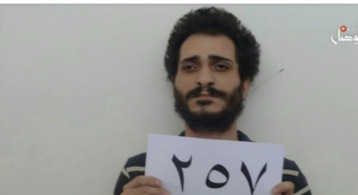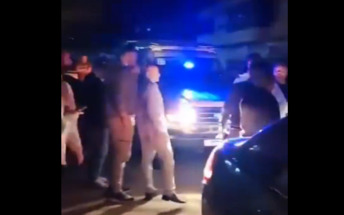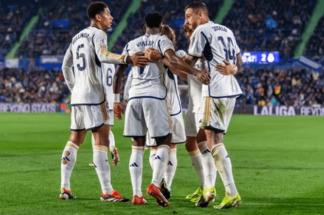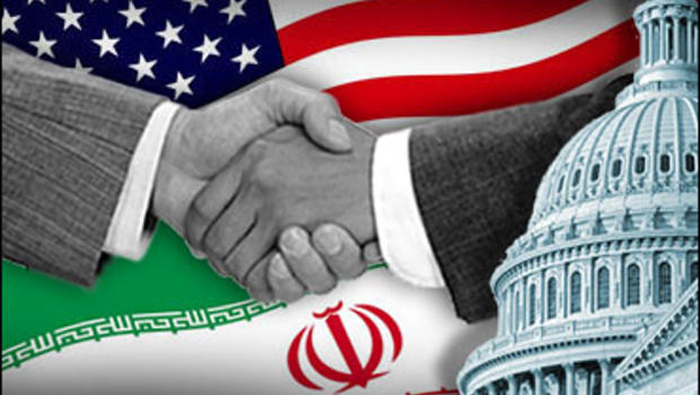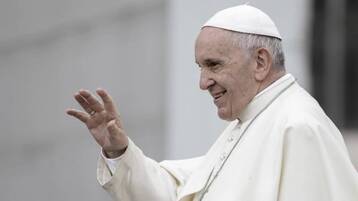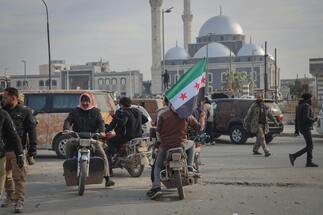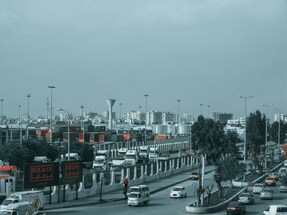-
Restive Hong Kong hunkers down as China’s birthday celebrations begin
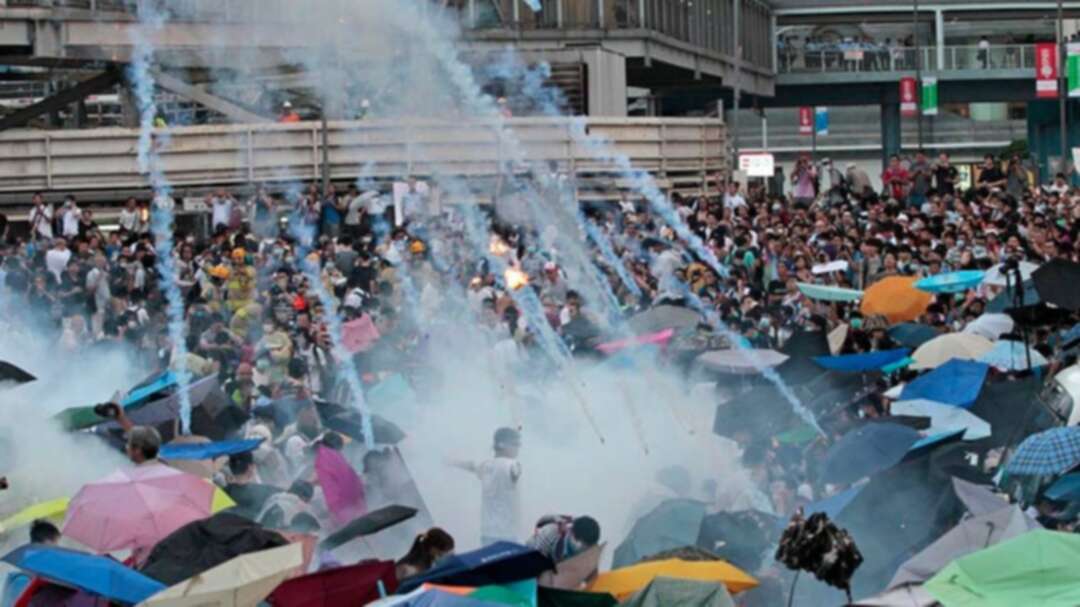
Hong Kong went into lockdown on Tuesday to ensure anti-government protests do not overshadow Chinese President Xi Jinping’s commemorations of the 70th anniversary of the founding of the People’s Republic of China.
The former British colony has been wracked by nearly four months of often violent anti-government protests, posing the gravest popular challenge to Xi since he came to power in 2012.
Protesters have pledged to seize on the holiday to propel their calls for greater democracy onto the international stage, hijacking an occasion Beijing sees as an opportunity to showcase China’s economic progress to the world.
Police said on Monday they expected a “very serious violent attack” to mark the anniversary. Authorities have rejected a permit submitted by protesters for a planned march, but demonstrations are expected across the city regardless.
Rail operator MTR Corp closed some flash-point metro stations, while several large shopping malls announced they would close, hoping to avoid damage in any clashes.
In an arrangement similar to that for the July 1 anniversary of the city’s 1997 handover from Britain to China - when protesters ransacked the legislature - guests attending the traditional flag-raising ceremony will be moved indoors.
The change is “to ensure that the flag-raising ceremony can be carried out in a solemn and orderly manner,” the city’s Home Affairs Department told Reuters.
The government of embattled Hong Kong leader Carrie Lam has already cancelled the annual October 1 fireworks display over the city’s iconic Victoria Harbour, citing public safety concerns.
Lam left for Beijing on Monday to celebrate China’s birthday on the mainland, despite sending out invitations “requesting the pleasure of your company” at a flag-raising ceremony and National Day reception at the Convention and Exhibition Centre.
Lam, who was trapped in an indoor stadium by street protests for hours last week after attending an “open dialogue” with the people, will return to the territory on Tuesday night.
In contrast to events in Hong Kong, Beijing’s carefully choreographed anniversary festivities are expected to involve 100,000 people, fireworks, artistic and athletic performances and displays of cutting edge military hardware.
Beijing is struggling to tame Hong Kong politically as it seeks to project an image of national strength and unity in the face of challenges including slowing economic growth and a trade war with the United States.
Protesters are angry about what they see as creeping Chinese interference in Hong Kong, which Britain returned to China under a “one country, two systems” formula guaranteeing freedoms that are not enjoyed on the mainland.
China dismisses the accusation and has accused foreign governments, including the United States and Britain, of fanning anti-China sentiment.
Last month, Beijing moved thousands of troops across the border into the restive city, a move state news agency Xinhua described as a routine “rotation” of the low-key force China has kept in Hong Kong since 1997.
Asian and Western envoys in Hong Kong however said the absence of any evidence that troops had been withdrawn suggested it was not a rotation but a reinforcement, with the largest-ever regular army force now stationed in the city.
On Sunday, Hong Kong police fired water cannon, rubber bullets and tear gas at petrol bomb-throwing protesters in some of the most widespread and violent clashes in more than three months of anti-government unrest.
You May Also Like
Popular Posts
Caricature
BENEFIT Sponsors Gulf Uni...
- April 17, 2025
BENEFIT, the Kingdom’s innovator and leading company in Fintech and electronic financial transactions service, has announced its sponsorship of the “Innovation and Sustainable Technology Solutions Competition (GU - IST Solutions), hosted by Gulf University at its main campus.
This strategic sponsorship reflects BENEFIT’s active role in advancing technological innovation and fostering sustainable solutions to future challenges. It also seeks to empower Bahraini youth by enhancing their skills, capabilities, and competitiveness in innovation and solution development—contributing meaningfully to the broader goals of sustainable development across all sectors.
As part of BENEFIT’s active involvement in the competition, the company has announced that Hanan Abdulla Hasan, Senior Manager of Public Relations and Communication, will serve on the competition’s supervisory committee. Her upcoming participation reflects BENEFIT’s forward-looking commitment to championing academic and professional excellence.
Commenting on the occasion, Hanan Abdulla Hasan, Senior Manager of Public Relations and Communication at BENEFIT, said, “We are privileged to support this pioneering initiative, which aligns seamlessly with BENEFIT’s enduring commitment to fostering innovation and nurturing the potential of Bahrain’s youth. Our participation is rooted in a deep sense of social responsibility and a firm belief in the pivotal role of innovation in shaping a sustainable future. Through such platforms, we seek to empower the next generation with the knowledge, skills, and foresight required to develop impactful solutions that address future challenges, in line with the United Nations Sustainable Development Goals 2030.”
Dr. Aseel Al Ayash Dean of the College of Engineering in Gulf University commented, “We extend our sincere gratitude to BENEFIT for their generous sponsorship and support of the Innovation and Sustainable Technology Solutions Competition. This contribution plays an instrumental role in helping us achieve the strategic goals of this initiative, namely, cultivating a culture of innovation and sustainability, encouraging efforts that address the imperatives of sustainable development, and enhancing the practical and professional capabilities of our students and participants.”
The event will bring together a diverse spectrum of participants, including secondary school students, university undergraduates, engineers, industry professionals, entrepreneurs, academic researchers, and subject matter experts representing a wide range of disciplines.
The competition seeks to inspire participants to develop and present innovative, sustainable technologies aimed at addressing pressing environmental, social, and economic challenges. It encourages the formulation of business models that integrate advanced technological solutions with core principles of sustainability. Moreover, it serves as a platform for emerging leaders, entrepreneurs, and innovators to contribute to the advancement of the Sustainable Development Goals, promote the ethos of responsible technology, and demonstrate its transformative potential across various sectors.
Attendees will have the opportunity to view a series of project presentations submitted by participants, covering diverse areas such as eco-friendly product design, smart and sustainable innovations, renewable energy technologies, water conservation and management, waste minimisation and recycling, green architectural solutions, and sustainable transportation systems. Outstanding projects will be formally recognised and awarded at the conclusion of the event.
opinion
Report
ads
Newsletter
Subscribe to our mailing list to get the new updates!

